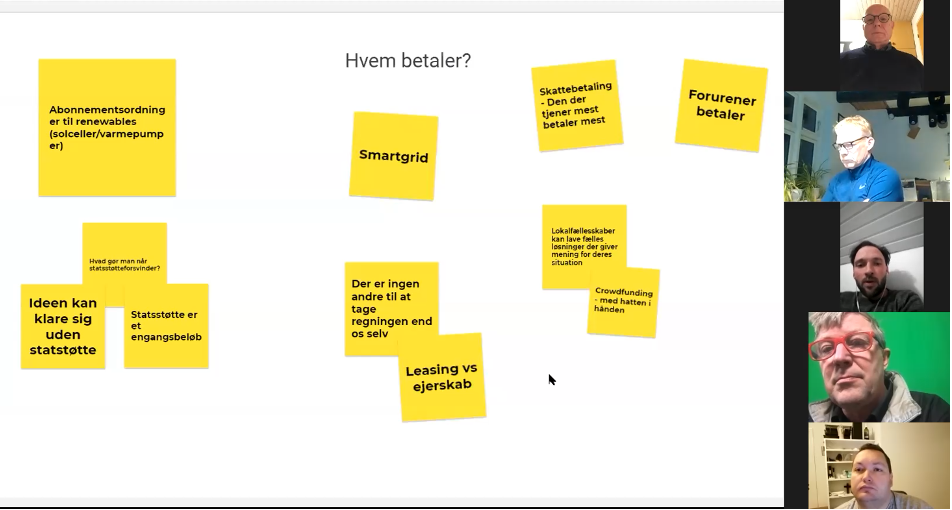Pilots Focus Groups Europe

What did we learn from the pilot focus groups?
As 2021 begins, we look back at the six focus groups that were piloted between late November and early December 2020 in Belgium, Denmark and Germany.
These mark the start of the dialogue with vulnerable citizens in “Fair Energy Transition for All” and have already furnished us with a number of interesting insights into how the energy transition is perceived in northern Europe.
The overall atmosphere
In all three countries, despite an initial hesitancy in some cases, the participants’ level of motivation and readiness to get their teeth into the topics was a clear sign that they valued the opportunity to make their concerns and opinions heard. Many people expressed an interest in taking part in future stages of the project, such as the planned national assemblies, which will mark the culmination of direct participation. Interestingly, a common finding across the three countries was the general willingness to change individual behaviour and contribute to the energy transition – we all must understand the consequences of our behaviour, participants said. However, this task must be shared across society: government and the private sector also have a part to play.
What mattered most to the participants?
Denmark: many small streams make a great river
The Danish participants acknowledged that a successful energy transition can be achieved if each person is willing to play her part, however small this may be in the bigger picture. It was clear that the participants had reflected on the meaning of the energy transition in their everyday lives, particularly with respect to transport: Everyone must have equal opportunities to transport oneself. Copenhagen may be famous for being one of the world’s most bike-friendly cities, but Denmark’s rural residents still need their cars to get around and will not simply agree to walk or cycle everywhere. A reformed public transport system or a different fuel source for cars should be up for consideration.
Belgium: one size doesn’t fit all
Participants in the Belgian groups expressed a reluctance to have any binding measures imposed upon them. People in precarious financial circumstances are typically not able to make expensive investments to bring their home insulation up to standard, for example. Obligations that treat everyone the same will not be designed with everyone’s needs in mind, resulting in extra hardship. An approach that combines public awareness-raising with government and private financial support for improvements in housing would therefore be preferable.
Germany: do unto others as you would have them do unto you
There was a high level of agreement in one of the German groups that a fair (and legitimate) energy transition could be achieved if citizens were invited to participate in political decision-making through a public consultation, for example. Social inequality was an important issue to participants in the German pilot groups: „Those at the top live in their skyscrapers and own their yachts. The others at the bottom live in poverty.” Participants also lamented the loss of respect between the generations and argued that the energy transition must be accompanied with a return to “neighbourly values” and increased cohesion within communities.
Having got the project off the ground, we look forward to a lively exchange with the remaining focus groups in 2021!
